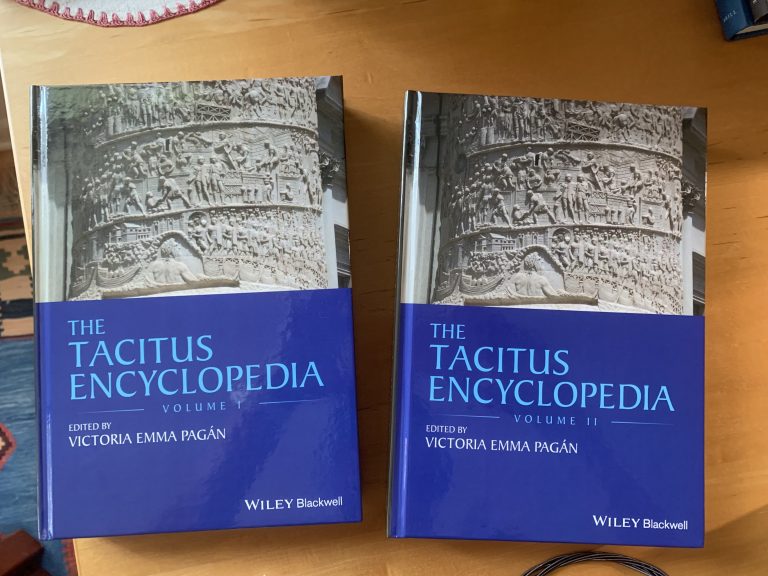
Courtesy of Circumnavigation/Adobe Stock
Creating a New Roman Encyclopedia
A new encyclopedia aims to make the works of Tacitus more accessible to general audiences
For centuries, the allure of the Roman Empire’s history has fascinated scholars, and thanks to ancient Roman writers and historians, we know a great deal about their culture. While names like Virgil and Cicero are widely recognized and celebrated, there are many lesser-known literary figures who have made significant impacts that deserve greater acknowledgment.

Victoria Pagán, a professor of classics, aims to make one such writer much easier to study and reference by releasing an encyclopedia dedicated to the writings and insights of the Roman historian Tacitus. The Tacitus Encyclopedia, published last month, stands as the sole comprehensive reference of its kind, providing a valuable resource for scholars and enthusiasts alike.
Like many of the writers of his time, Tacitus offers insight into wealthy and powerful upper-class men. Yet, his stories transcend convention by illuminating the lives of non-elites. Tacitus brings lower-class characters into the forefront, granting them the prominence they deserve. In other works, characters like these are often consigned to the shadows, but Tacitus unveils the pivotal roles they play in the grand tapestry of history, particularly during conspiracies and civil unrest.
Tacitus lived from 56 CE to 120 CE, working as a writer between 100-117 CE, during the zenith of the Roman Empire. This period witnessed the empire’s vast dominion extending from Britain to North Africa to modern-day Turkey. Consequently, Tacitus’s stories often include these diverse settings, providing valuable insights into their Roman occupation and expanding our knowledge of these distant regions.
“Furthermore,” Pagán said, “because Tacitus was writing during this time, he can refer to historical events from Homer to Hadrian.”
The encyclopedia is a monumental work, requiring two volumes to accommodate all 1,892 entries. These entries diligently explore various aspects of Tacitus’s writing, including entries on every named character, regardless of their significance, as well as locations, and relevant topics such as politics, material culture, literary criticism, and social history. Pagán had help while compiling the extensive entries, enlisting the contributions of 179 experts from 26 different countries, making this encyclopedia a global effort.

One of Pagán’s main goals in writing this encyclopedia is to garner increased attention to Tacitus and underscore his importance to the field. For instance, the HBO show “Succession” refers to Tacitus, which is fitting as he provides “one of the most penetrating analyses of Roman imperial succession,” according to Pagán.
The Tacitus Encyclopedia was designed to be accessible. It’s composed entirely in English, actively avoiding convoluted technical language and abbreviations that might overwhelm readers. A sophisticated system of cross-referencing also empowers readers to maximize the information provided, according to Pagán. For instance, if you’re reading the entry of Sporus, as mentioned in “Succession,” you’ll be guided to further entries expanding on his place in society.
While the team strives for comprehensiveness, it deliberately leaves room for future exploration. Pagán intends to create a valuable resource that provides a wealth of knowledge and serves as a catalyst for further research and discovery. The Tacitus Encyclopedia serves as an indispensable guide for anyone seeking to unravel the secrets of the Roman Empire’s past through the gaze of Tacitus.
For more information about Pagán’s work, click here.
Tacitus-themed crossword puzzle


